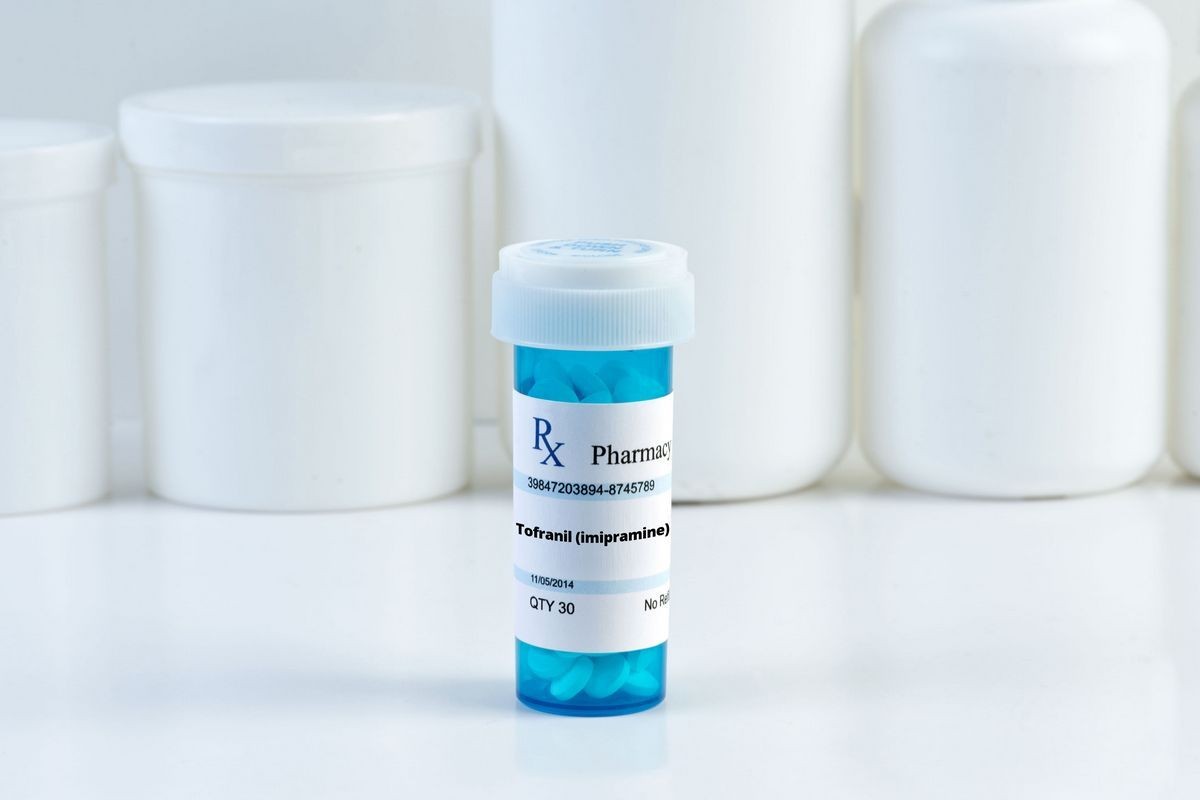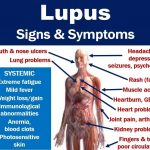
Contents
Side Effects of Tofranil (imipramine)
Depression is defined as a pervasive sense of sadness. Abnormal levels of neurotransmitters in the brain may cause depression by disrupting communication between nerves. Tofranil raises neurotransmitter levels to elevate mood.
Common side effects of Tofranil:
Serious side effects of Tofranil:
- high blood pressure,
- dizziness and low blood pressure on standing,
- fainting,
- heart attack,
- stroke,
- seizures,
- hepatitis,
- abnormal heartbeats (arrhythmia),
- elevated pressure in the eyes of patients with glaucoma,
- increased risk of suicidal thinking and behavior in children and adolescents with depression and other psychiatric disorders.
Abrupt discontinuation of Tofranil could lead to withdrawal symptoms:
Drug interactions of Tofranil include other medications and drugs that slow brain processes, such as alcohol and narcotics, which may amplify Tofranil’s effects.
Reserpine, given to patients taking Tofranil, can cause agitation and anxiety.
Tofranil should not be used with monoamine oxidase inhibitors (MAOIs) due to the risk of high fever, convulsions, and death.
Cimetidine can increase Tofranil blood levels. Other drugs with this effect include propafenone, flecainide, quinidine, methylphenidate, and fluoxetine.
Use of Tofranil during pregnancy has not been adequately evaluated.
Tofranil may be excreted in breast milk and may harm the infant. Consult your doctor before breastfeeding.
What are the side effects of Tofranil (imipramine)?
The most common side effects of imipramine are:
- nausea,
- vomiting,
- weakness,
- confusion,
- anxiety,
- insomnia,
- increased heart rate,
- heart palpitations,
- blurred vision,
- difficulty urinating,
- dry mouth,
- constipation,
- weight gain or loss,
- rash,
- hives, and
- impotence.
Other important side effects include:
- high blood pressure,
- low blood pressure when standing (orthostatic hypotension),
- fainting,
- heart attack,
- stroke,
- seizures,
- hepatitis, and
- abnormal heart beats (arrhythmia).
Tofranil can cause elevated pressure in the eyes of some patients with glaucoma.
Prolonged therapy with high doses of imipramine and abrupt discontinuation could lead to withdrawal symptoms:
- nausea,
- vomiting,
- diarrhea, or
- restlessness.
Experts recommend gradually reducing the dose if the drug is to be discontinued.
Antidepressants increased the risk of suicidal thinking and behavior in short-term studies in children and adolescents with depression and other psychiatric disorders. Close observation is necessary for patients starting therapy for clinical worsening, suicidal thinking or behavior, and unusual changes in behavior.
Tofranil (imipramine) side effects for healthcare professionals
Note – Although the following listing includes some adverse reactions not specifically reported with Tofranil, they should be considered due to pharmacological similarities among tricyclic antidepressant drugs.
- Cardiovascular: Orthostatic hypotension, hypertension, tachycardia, palpitation, myocardial infarction, arrhythmias, heart block, ECG changes, congestive heart failure, stroke.
- Psychiatric: Confusional states (especially in the elderly) with hallucinations, disorientation, delusions; anxiety, restlessness, agitation; insomnia and nightmares; hypomania; psychosis exacerbation.
- Neurological: Numbness, tingling, paresthesias of extremities; incoordination, ataxia, tremors; peripheral neuropathy; extrapyramidal symptoms; seizures, EEG pattern changes; tinnitus.
- Anticholinergic: Dry mouth, associated sublingual adenitis; blurred vision, accommodation disturbances, mydriasis; constipation, paralytic ileus; urinary retention, delayed micturition, urinary tract dilation.
- Allergic: Skin rash, petechiae, urticaria, itching, photosensitization; edema; drug fever; cross-sensitivity with desipramine.
- Hematologic: Bone marrow depression including agranulocytosis; eosinophilia; purpura; thrombocytopenia.
- Gastrointestinal: Nausea, vomiting, anorexia, epigastric distress, diarrhea; taste disturbance, stomatitis, abdominal cramps, black tongue.
- Endocrine: Gynecomastia in males; breast enlargement, galactorrhea in females; increased or decreased libido, impotence; testicular swelling; blood sugar level elevation or depression; inappropriate antidiuretic hormone secretion syndrome.
- Other: Jaundice; altered liver function; weight gain or loss; perspiration; flushing; urinary frequency; drowsiness, dizziness, weakness and fatigue; headache; parotid swelling; alopecia; proneness to falling.
- Withdrawal Symptoms: Nausea, headache, malaise (after prolonged therapy cessation).
Note – In enuretic children treated with Tofranil, the most common adverse reactions reported are:
- nervousness,
- sleep disorders,
- tiredness,
- mild gastrointestinal disturbances.
These reactions usually disappear during continued drug administration or when dosage is decreased. Other reported reactions include:
- constipation,
- convulsions,
- anxiety,
- emotional instability,
- syncope, and
- collapse.
All the adverse effects reported with adult use should be considered.
What drugs interact with Tofranil (imipramine)?
Drugs Metabolized By P450 2D6
- The activity of the drug metabolizing isozyme cytochrome P450 2D6 may be reduced in a subset of the population.
- Poor metabolizers may have higher plasma concentrations of TCAs.
- Some drugs inhibit this isozyme, making normal metabolizers resemble poor metabolizers.
- Certain drugs inhibit cytochrome P450 2D6 and may require dosage adjustments.
- Caution is indicated in coadministration of TCAs with SSRIs and in switching between classes.
- Appropriate time should elapse before initiating TCA treatment in patients being withdrawn from fluoxetine.
- TCAs and drugs inhibiting cytochrome P450 2D6 may require lower doses when used concomitantly.
- TCA plasma levels should be monitored when coadministered with known P450 2D6 inhibitors.
- Plasma concentration of imipramine may increase when given with hepatic enzyme inhibitors, and dosage adjustment may be needed.
- Anticholinergic drugs and imipramine hydrochloride may have more pronounced effects when used together.
- Use caution when using imipramine hydrochloride with agents that lower blood pressure.
- Imipramine hydrochloride may enhance the CNS depressant effects of alcohol.
Summary
Tofranil (imipramine) is a tricyclic antidepressant used to treat depression, bedwetting, and chronic pain. Common side effects include nausea, vomiting, weakness, confusion, anxiety, insomnia, increased heart rate, heart palpitations, blurred vision, difficulty urinating, dry mouth, constipation, weight changes, rash, hives, and impotence. Use during pregnancy and breastfeeding should be avoided due to potential harm.


